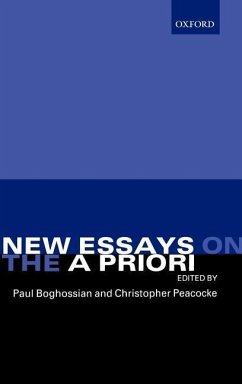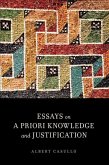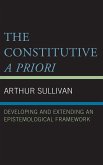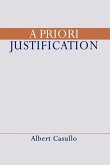The topics of a priori knowledge and a priori justification have long played a prominent part in epistemology and the theory of meaning. Recently there has been a surge of interest in the proper explication of these notions. These newly commissioned essays, by a distinguished, international group of philosophers, is likely to have a substantial influence on later work in this area. They discuss the relations of the a priori to meaning, justification, definition and ontology; they consider the role of the notion in Leibniz, Kant, Frege and Wittgenstein; and they address its role in recent discussions in the philosophy of mind. Particular attention is also paid to the a priori in logic, science and mathematics. The authors exhibit a wide variety of approaches, some remaining sceptical of the notion itself, some proposing that it receive a non-factualist treatment, and others proposing novel ways of explicating and defending it. The editors' Introduction provides a helpful route into the issues.
A stellar line-up of leading philosophers from around the world offer new treatments of a topic which has long been central to philosophical debate, and in which there has recently been a surge of interest. The a priori is the category of knowledge that is supposed to be independent of experience. The contributors offer a variety of approaches to the a priori and examine its role in different areas of philosophical inquiry. The editors' introduction offers an ideal way into the discussions.
Hinweis: Dieser Artikel kann nur an eine deutsche Lieferadresse ausgeliefert werden.
A stellar line-up of leading philosophers from around the world offer new treatments of a topic which has long been central to philosophical debate, and in which there has recently been a surge of interest. The a priori is the category of knowledge that is supposed to be independent of experience. The contributors offer a variety of approaches to the a priori and examine its role in different areas of philosophical inquiry. The editors' introduction offers an ideal way into the discussions.
Hinweis: Dieser Artikel kann nur an eine deutsche Lieferadresse ausgeliefert werden.









